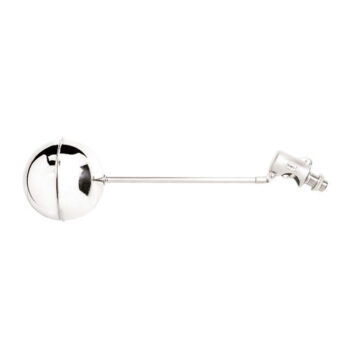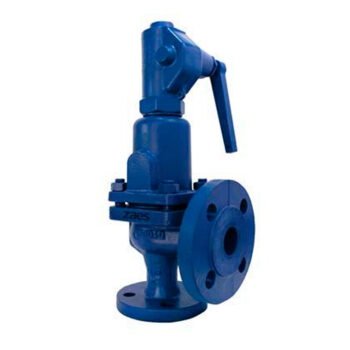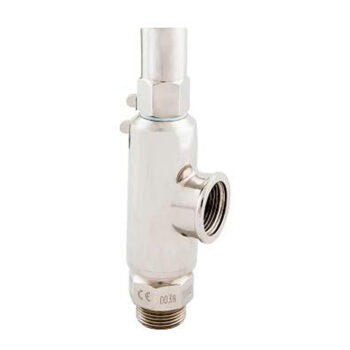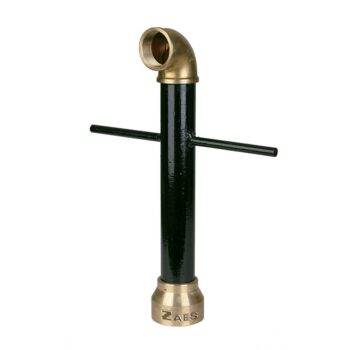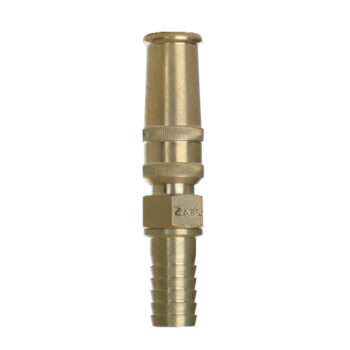Industries ➭ DRINKING WATER AND WASTE WATERS
Water management (drinking water and waste water) and the importance of water in industrial processes.what is the importance of water use?
Water management is an issue of great importance for industry. Drinking water is an indispensable resource for the operation of most industrial processes. It is needed to cool equipment and machines, to produce goods and products, to ensure the quality of goods and products and for the use of some inputs. On the other hand, wastewater is also important in industry. This water must be properly treated to prevent contamination of water resources, which can seriously affect the environment.
Companies like ZAES that manufacture safety valves, needle valves, stainless steel float valves and accessories for instrumentation and we rely on water to ensure the success of our manufacturing processes.
This is why water management is a key issue for industry. The efficient use of drinking water and the correct treatment of wastewater is essential to ensure the proper functioning of industrial processes. This involves proper planning to ensure quality water supply, control of wastewater treatment costs and compliance with environmental standards.
In addition, there are innovative technologies that enable more efficient water management with quality valves such as stainless steel float valves. These include water recycling systems, wastewater treatment and monitoring systems. These technologies can help reduce water consumption and treatment costs, as well as improve compliance with environmental standards.
In conclusion, safety valves, needle valves, stainless steel float valves and accessories for water management instrumentation are a key issue for the industry. Efficient use of potable water and proper wastewater treatment are essential to achieve better performance and compliance with environmental standards. In addition, the application of new innovative technologies can help to improve water management and enable better use of water resources.
Common uses of water and waste water:
Hydropower is one of the most widely used forms of clean energy production. This energy is generated from the force of water, stored in a dam and then passed through a turbine to produce electricity. Hydropower is a completely renewable form of energy production and is a safe, clean and cheap source of energy.
Industrial water cooling is a technique commonly used to cool industrial equipment and refrigeration systems. This technique is based on the use of a number of components, including pumps, piping, valves, radiators, air conditioning units, etc. The cooling process is carried out through the use of a liquid solution, such as water.
The production of chemicals is a fundamental requirement for the development and growth of modern society. These substances are used to manufacture a wide range of products, from medicines to foodstuffs, and their production depends on an essential resource - water. Water is one of the most important natural resources for the chemical industry. It is used for washing, cooling and producing chemicals.
Water is one of the main natural resources used for food processing. It is an essential ingredient for the preparation of foods such as meat and dairy products. Water is used to wash and sanitise food, remove dirt and debris, mix ingredients, control temperature, improve consistency and texture, and to cool food.
The steel industry is one of the most important industrial branches in the world, as its production generates the steel used to build bridges, buildings, roads and other products. This industry requires significant amounts of water to cool and lubricate steelmaking equipment. Water is used to reduce the temperature of the production processes, which improves the quality of the steel, as well as to lubricate the equipment.
Mineral processing is a fundamental activity for the production of commercial products and energy resources. To carry out this task, a constant supply of water is needed. Water is necessary for the dissolution, separation, suspension and transport of minerals. Water is also used to maintain proper process conditions and to cool equipment and reagents.
Wastewater treatment is a process that helps to purify water to make it safe and clean. The main objective of this process is to remove wastes and pollutants present in wastewater to make it suitable for recreational, irrigation, drinking water supply and other purposes. Wastewater treatment consists mainly of a series of physical, chemical and biological processes.
Irrigation is a technique of using water to irrigate fields and crops. This practice has been used for thousands of years, especially in hot countries where water is a precious commodity. The main purpose of irrigation is to ensure that crops receive enough water to grow properly.
These are the best-selling products for water treatment
What is drinking water and wastewater used for? in the industry?
Typical uses of drinking water and wastewater in industry.
Water is a fundamental resource for life and industry. Many industrial processes require the use of water to achieve the desired results. Water is used to create products such as food, beverages, chemicals, fuel, paper and other materials.
Industry needs potable water for many of its applications. Drinking water is a natural resource that is obtained from the local supply to meet the needs of a given industry. Drinking water is used to produce products such as food, beverages, pharmaceuticals, chemicals, fuel and other materials.
It is also used in industrial processes to cool, clean, wash and treat raw materials.
Wastewater is also an important resource for industry. Wastewater is the liquid that is generated as a result of industrial processes.
These liquids include black, grey and white water:
Sewage is the most polluted wastewater and must be treated before it is discharged into the environment.
Greywater is generated from industrial cleaning and cooling processes. This water can be recycled for industrial use.
White water is clean water and can be discharged into the environment without prior treatment.
In conclusion, water is essential for industry and its use must be properly managed. Drinking water is a natural resource to meet the needs of industry. Wastewater generated by industrial processes should be treated and recycled for industrial use or discharged to the environment as long as quality standards are met.
The common uses of waste water.
In these times when water is an increasingly scarce resource, common uses of wastewater have become a very important solution for the preservation of water resources. Wastewater is the water that is collected from different sources, such as household drains, industries and sewage treatment plants. This wastewater contains a large amount of pollutants and therefore cannot be used directly for domestic purposes or for crop irrigation.
However, there are several ways in which this wastewater can be used safely. One of them is the irrigation of parks and gardens. Some countries also allow wastewater to be used for cooling nuclear reactors. Another way is power generation. Wastewater can be used to produce electricity through hydropower technology.

In addition, wastewater can also be used for agriculture. This is known as drip irrigation or high quality irrigation. This technique is used to improve the quality and yield of crops as well as to reduce production costs.
Wastewater can also be treated and reused for domestic purposes. This is known as recycled water. This water is treated and purified to remove contaminants and make it suitable for domestic uses such as washing clothes, personal hygiene and household cleaning.
In conclusion, wastewater can be a valuable resource if used properly. This will help to preserve water resources and reduce pollution. If used correctly, wastewater can be a valuable resource.
The common uses of drinking water in manufacturing.
Potable water is one of the most important natural resources for manufacturing. It is used in numerous applications, from cleaning equipment to producing quality products. Therefore, drinking water remains a key factor for the success of a company.
Manufacturing requires a significant amount of water for cleaning processes. Industrial facilities use potable water to rinse equipment, tools and products after each use. This helps prevent contamination and damage. In addition, potable water is needed to clean products before they are shipped to market.
Drinking water is also necessary to manufacture quality products. For example, drinking water is used to mix ingredients to obtain a uniform end product. This helps to ensure food safety and product quality.
In addition, drinking water helps to reduce production costs and production times. This is because drinking water is a cheap, clean and easily accessible resource. Therefore, drinking water is an essential tool for manufacturing.
Drinking water is also used to reduce waste generation. For example, potable water can be used to reduce the amount of liquid waste generated by manufacturing processes. This helps to reduce environmental impact and disposal costs.
In short, drinking water is a vital natural resource for manufacturing. It is used to clean equipment, mix ingredients, reduce waste and save costs. In addition, drinking water is a cheap, clean and readily available resource. Therefore, potable water remains a key factor for the success of a company.
